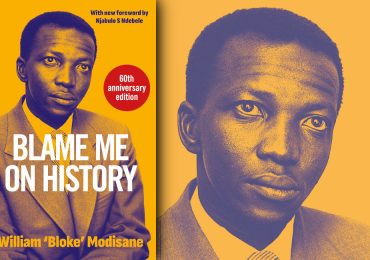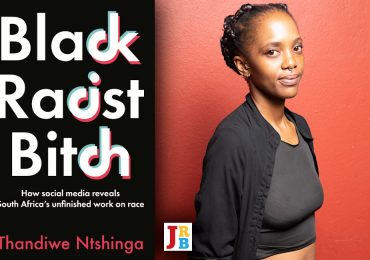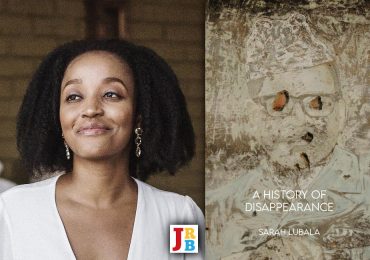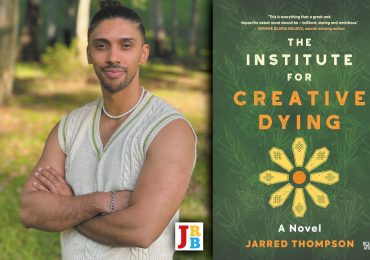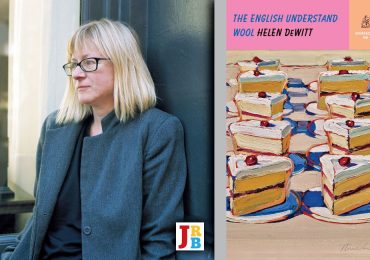A commentary on the present crisis and the need for literate understandings of it by Angelo Fick.
1.
These are extraordinary times, and most of us are trying to live ordinary lives. The patterns on which we have relied, the habits of thought and being that have become our way of life, have been interrupted. Most disturbingly, ‘life as we knew it’ has been brought to a spectacular halt by something we only began to name and know as the source and cause of disease a little over a century ago.
There is, of course, nothing new in this condition: trying to establish normality amid abnormality. This is the way of life for millions of people around the world, and has been for a long time. One only has to cast one’s gaze over the long sweep of human history, or not avert it from the testimonies and images emerging from places that used to be mere names on maps or in the stories related in sacred texts.
Plague: not a word missing from everyday vocabulary, but it can still circulate with the power of its older, literal usage. However, many of us live in a world in which we have convinced ourselves that we are not vulnerable to plague, that our knowledge and our ingenuity have placed us beyond its powers, mostly. In a talk published in La Repubblica, Umberto Eco, the Italian novelist and philosopher, suggests that despite the long passage of time from Mediaeval Europe to the global integration of the third millennium, in some senses we moderns are much like our forebears. Those people who eight centuries ago invested powerfully in magical belief are mirrored in our contemporary assumption that technology is science, and that science (thus misunderstood) elevates us above our predecessors. Eco suggests that, on the contrary, our possessive investment in technology as if it were science, our mistaking of the former for the latter, betrays our own magical thinking. Few among us can fully explain how flicking a switch brings light to the dark room, or how and why taking an analgesic relieves pain. Therefore, observing responses—individual and collective, among our political and corporate captains—to Covid-19, we are reminded of just how short the distance is between the era of magicians and the time we think of as the age of science.
Elaine Scarry, in Thinking in an Emergency (2011), proposes that the habitual plays a significant role in times of crisis. She suggests:
‘If we can act, we do so out of the habitual. Habit yokes thought and action together. If no serviceable habit is available, we will use an unserviceable one and become either immobilised or incoherent.’
Over the last 150 days we have learned much about the power of the habitual in post-millennial, post-apartheid South Africa. We have heard it in the grumbling, cavilling, quarrelling and grousing about the logic (or lack of) of government decrees. We have also seen it in the defiance of logic among the many bourgeois folks who mistook their entitlement for rights, whether to go running, do yoga on the beach, surf, get takeaway coffees, or to purchase items subjected to restricted trade. We saw it in South Africans’ insistence on gathering for worship or to honour the dead—one group taking the matter to court, losing their bid to overturn the prohibition on congregating in numbers greater than fifty. We saw it in the contradictory messages relayed by official government channels, in the conflict between some experts advising government, between government officials and such experts, and in the ways in which opposition parties contradicted themselves as they opposed government proclamations. For a society that had been subjected to several states of emergency, for a polity that had experienced several natural disasters over the last decades, for a state governed by people who had lived through both these kinds of crises, South Africa could often, over the period of the lockdown, seem anarchic and chaotic.
The perception of chaos is of course not only applied to the phenomenal world of politics and economics, or work and family life. The confusion also marked our internal states. Our habitual public ways of being were stalled by restrictions on movement, on curfews, and the shutting down of the many places we had become accustomed to gathering, whether in masjids and shuls and churches and temples, or in restaurants and shopping centres and seaside promenades. But removed from friends and family, our internal states were also in disequilibrium. As many in the knowledge and information industries moved their work onto the World Wide Web, so we had to move our interactions with others onto the same platforms. We ‘attended’ nuptial ceremonies by watching them on screen—the concept of bearing witness to and at such events taking on its older, literal meaning, returning to the background the metaphorical significance that had become dominant in such attendance; we could suddenly see, and by seeing, imagine ourselves participating by being there, and being there for one another. We buried our dead across impossible distances.
But the crisis induced by Covid-19 was more than just one of isolation or withdrawal from public life. It also became a crisis of interpreting the world in new ways. Disinformation, misinformation, false information: these have all been features of human life for a long time, but they have become unavoidable as they spread across the screens we have become more and more reliant on, if not addicted to. The media through which you read about and saw images of distant and foreign places and the actions of the people who lived there also became the conduits through which you experienced the most intimate of losses, the deepest senses of joyful fellow-feeling with your most intimate peers. The rants of emperor-presidents far away came to us in the same way as the grief of your siblings burying your father. Life felt like EM Forster’s ‘The Machine Stops’ (1909).
2.
James Baldwin suggested that one of the positive consequences of reading was that it showed the reader that they were neither the first nor the only person to experience the world in particular ways. For many of us reading has always been a way of wrestling order from chaos. But this crisis—despite large swathes of time suddenly becoming free; there was nowhere to go, nobody to see, nothing to do—felt strange enough to make concentration difficult. Even reading slowed down, replaced by what could not even be called contemplation.
One way of dealing with the inability to concentrate was to re-read books already familiar. To make this revisitation to the familiar, this return to what was already known, feel less like indulgence, many of us went back to the plague books and the dystopian novels, the works that did not quite prefigure the present but could presumably help us make sense of ourselves and our odd responses to it. And so, back to Daniel Defoe’s A Journal of the Plague Year (1722), his eighteenth century reimagination of the seventeenth-century plague that decimated the population of London. Defoe’s description of how ‘many families, foreseeing the approach of the distemper, laid up stores of provisions sufficient for their whole families, and shut themselves up’ prefigures (or recalls, or echoes) the stockpiling of toilet paper and baked beans.
In his suggestion ‘that this necessity of going out of our houses to buy provisions was in a great measure the ruin of the whole city, for the people catched (sic) the distemper on these occasions one of another, and even the provisions themselves were often tainted’, you recall the stories of sanitising groceries. Magical thinking, or technology applied to scientific thinking, that germ theory of disease from just over a hundred years ago. It’s the reason you wash your hands and quibble about the alcohol content in sanitiser. We all start wearing masks, because like those in the century before Defoe’s writing, we too believe ‘the danger is as great from you to us as from us to you’. Shields separate those in customer care from those who come to trade, we step away from one another on public walkways, we stand in queues far apart from one another. New rituals, new times.
Only, we are the descendants of people who survived the 1918 influenza epidemic. We are the people who survived other pandemics. We are survivors. But magical thinking also reveals itself in the ‘cures’ peddled by the powerful and the desperate, by the opportunistic exploitation of people’s fear and dread, and by the industries dedicated to profiting from human anxiety. (See how, in Defoe’s sketch, ‘one of the quacks, who published that he had a most excellent preservative against the plague’, was carried off by it and succumbed ‘in two or three days’.) Symptom relief and cure are inseparable in such magical thinking, sometimes peddled as ‘decolonial action’, sometimes as the ravings of dictators on the periphery or the aspirant dictators of the imperial centres, to invoke Samir Amin’s analytical scheme of millennial global disorder.
But as Aldous Huxley proposed in Brave New World Revisited (1959), ‘Illness is even more effective than fatigue as an intensifier of suggestibility’, and so it is perhaps less surprising that in South Africa, where unproven remedies and fake cures are ubiquitously advertised on crude placards affixed to electricity boxes and pamphlets widely distributed, there should be the peddling of such in times of a health crisis. What is surprising is how even formally educated members of the middle classes began suggesting that their investment in these untested and unproven ‘preservative[s] against the plague’ proved their anti-imperial, anti-colonial, and anti-capitalist commitments.
Albert Camus’s La Peste (1947) also proved a book many returned to. Some even suggested a revisitation to this mid-twentieth century novel as a way of coping with the Covid-19 pandemic and the crisis it induced. Ironically, in doing so, we repeated the action of the inhabitants of Camus’s plague-ridden city:
‘Finding that the public’s appetite was insatiable, they had some researches made in the town libraries of all the [plague] writings of this kind that could be found in the highways and byways of history … When history itself proved to be short on prophecies, these were commissioned from journalists, who proved, in this respect at least, to be as competent as their counterparts in earlier centuries.’
Plus ça change, plus c’est la même chose.
3.
Covid-19 and the novel coronavirus are of course not plagues, though they have eerily similar consequences. We who have lived through deadly crises before—the HIV/Aids pandemic, the ‘Midlands massacres’ of the mid-nineteen-nineties in KwaZulu-Natal, and before those the paranoid violence of the latter decades of apartheid—proved ourselves no more capable of dealing with this pandemic. Some of our under-preparedness is the consequence of poor planning, much of it is the consequence of decisions actively made in this society over the last quarter of a century.
The venality of our corporate and political elites, the maladministration of public life resulting from the corrupt cooperation between these sectors—which conveniently blame one another for the current state of affairs—played its part. But the weak social compact between the haves and the have-nots in this most unequal society cannot solely be the consequence of government inaction. We have made this society by everyday rituals, by the habits of being and thought that made it possible to ossify the spatial arrangements of colonialism and apartheid in our towns and cities. We enabled the crisis of nutrition and the risk to people’s lives by the suspension of their means of earning a ‘livelihood’ in the polity with the greatest wealth and income inequality—not by accident, but by design—and by reinforcing the structures by which inequality is made every living day. All of us, whether complicit, or merely implicated.
What we have seen in this emergency, this Covid-crisis, is that reading is not enough, thinking is not sufficient, but such habits do help us make better sense of what is happening around us, to know that we are neither the first nor the only people to have to cope with disaster unbidden. It also helps us to engage imaginatively with our troubles, so that we do not merely return to old habits, but allow ourselves to engender new habits, of thought, and hopefully also of action. As Scarry suggests, if thinking becomes habitual, we may improve our capacity to act because we will have aroused in ourselves the ability to respond to emergencies by acting, but also by thinking.
Reading is a form of thinking because it requires engagement with thinking written down. And as Scarry points out, ‘In ordinary life, the more useful a habit is the stronger it will grow, simply because each day will provide the occasion to practice it.’ We need to practice new habits, of thought and being. If nothing else, this winter of our discontent has shown us how ill-prepared we are as individuals and collectively to the challenges that lie ahead in this century.
- Angelo Fick is a Director of Research at the Auwal Socio-economic Research Institute (ASRI) in Johannesburg. He taught across various disciplines in the humanities and sciences at universities in South Africa and Europe for two decades, before a brief stint as a news analyst in the broadcast industry. His work has appeared in the Mail & Guardian, The Funambulist Magazine, the Journal of Commonwealth Literature and English in Africa.

